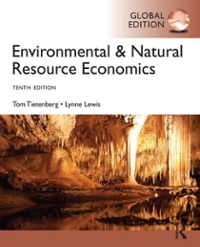Question
HR PLANNING FOR EXECUTIVE-LEVEL GENDER DIVERSITY It isn't easy for a woman to gain top-level positions in large MNCs, even in our modern age. This
HR PLANNING FOR EXECUTIVE-LEVEL GENDER DIVERSITY It isn't easy for a woman to gain top-level positions in large MNCs, even in our "modern" age. This added difficulty for women reaching the executive suite should be a major concern for human resource planning, which aims at providing a capable workforce to meet future work challenges and demands. Gender-based obstacles end up greatly limiting the talent pool for the company's future leadership and leads to less insightful executive teams that lack a diversity of perspectives and experiences that match a more evenly gendered, lower-level employee and customer profile. It is especially hard for women to get to the top in a firm that is in a masculine line of business, but Fran Keeth is a major exception. Fran holds both global and regional positions with Shell. At the global level she is executive vice president chemicals and at the regional level she is president and CEO of Shell Chemical LP, the U.S. arm of Shell Chemicals Ltd., based in London. Fran is the first woman to hold such lofty leadership in the chemicals industry. Fran earned a bachelor's degree in accounting and then went on for an MBA and a law degree, all from the University of Houston in Texas. She started her career in Houston in 1970, at Shell Oil Company, a subsidiary of a Royal Dutch/Shell, where she worked first as a secretary and studied at the same time. Fran held many different positions in Shell Oil Company. She worked in the finance and tax departments with increasing responsibility, and in 1991, she became a general manager of Product Finance. After twenty-two years with the company, in 1992, she was brought to London as a deputy controller, area coordinator for the East Australasia regions, and oil products finance manager. She left Shell in 1996, and worked for Mobil as their worldwide controller. But one year later she returned to Shell and started to work in Shell Chemicals as global executive vice president of finance and business systems. This position led her to the position of president and CEO of Shell Chemicals in 2001, and finally to executive vice president chemicals in 2005. Her resume seems to be quite usual, but Fran has said the fact that she is a woman made it more difficult for her to advance in the company. She experienced the unique social challenges of being a woman, such as being told to leave the conference room during a planning meeting, because the matter was "discussed only with managers," the speaker assuming that as a woman she could not possibly be a manager. Fran says that one reason for women having difficulties is that it is often assumed that women are not interested in international assignments and that they would not like to travel because of their family. She believes that this reluctance on a woman's part can be the case in some situations, but it should not be an automatic assumption. A distinct advantage for Fran was her career path that was almost completely in finance, which is seen more as a core function of the whole business rather than more support and secondary functions of sales and marketing where women often reside and remain. One of Fran's main objectives now is to make it easier for women to develop their careers and to gain more responsibilities in her company. By 2008, the company aims to have 25 percent of its executive positions held by women. In 2001, the figure for women in such positions in Shell Chemicals was 11 percent. She also has created workshops for managers to gain a better understanding of the stereotypes that are common when it comes to women in higher positions. The result she hopes to see is a change in the traditional way of thinking. "The new career-advancement system will be no less based on merit than it had been when a man was in charge," Fran says. Instead, she predicts that Shell will have a broader talent pool and an environment where women will have better chances to succeed. She adds, "They will be able to put more energy into their work; they won't have to spend their time trying to fit in." QUESTIONS : 1. Why would you say an MNC in its HR planning should be interested in gaining a greater representation of women employees across its various employee levels, including the top leadership ranks?
2. What are particular obstacles that women might face in gaining higher positions of responsibility in their organizations? Would you consider some industries and specialties less conducive to increased women leadership?
3. What would you recommend for Fran Keeth to assist her in HR planning to achieve greater women representation among top management.
Step by Step Solution
There are 3 Steps involved in it
Step: 1

Get Instant Access to Expert-Tailored Solutions
See step-by-step solutions with expert insights and AI powered tools for academic success
Step: 2

Step: 3

Ace Your Homework with AI
Get the answers you need in no time with our AI-driven, step-by-step assistance
Get Started


